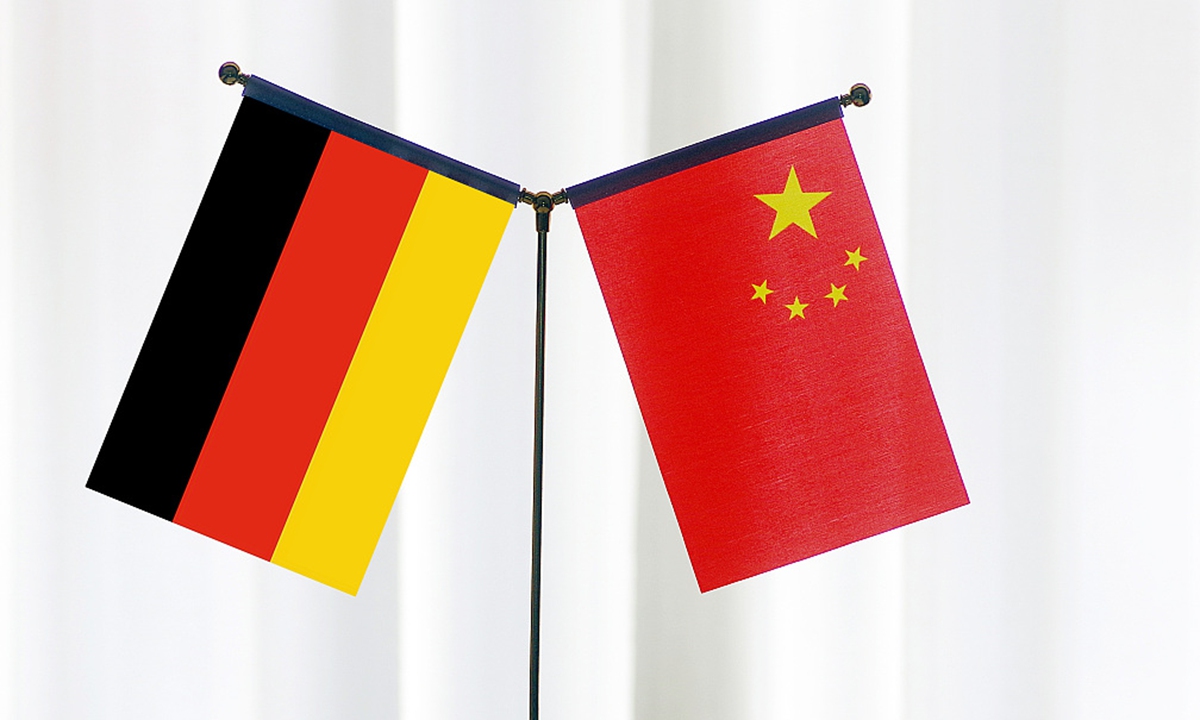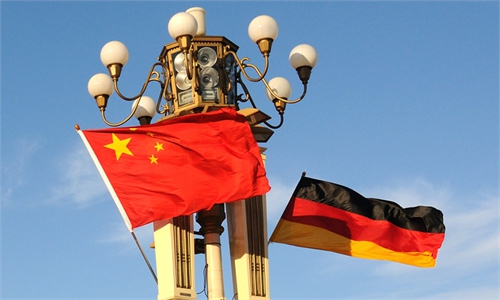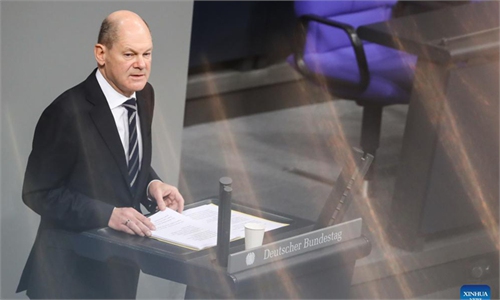Update: Xi-Scholz phone call eyes advanced China-Germany friendship, ‘reinforces a solid start’

Photo:VCG
Chinese President Xi Jinping spoke on the phone with Germany's new Chancellor Olaf Scholz on Tuesday, in which the two leaders pledged to inherit and advance China-Germany friendship and cooperation, maintain close communication on hotspot issues and jointly defend multilateralism in international affairs.This was the first conversation between the two leaders after Scholz formally took office on December 8, marking an end to Angela Merkel's 16 years as leader.
Xi once again congratulated Scholz for being elected as German Chancellor. He stressed that China-Germany cooperation is the bellwether of China-EU cooperation and looking ahead to the next 50 years, the two countries should take a global and long-term view, forge ahead and strive for new development of bilateral relations.
Xi called on the two sides to promote mutual cooperation in an active and pragmatic attitude, actively exploring new areas of cooperation such as new energy, green and digital economy, and unleashing the growth potential of trade in services.
"We welcome German companies to leverage their advantages and seize the new opportunities brought by China's opening-up. We also hope that Germany will provide a fair business environment for Chinese companies in Germany. Germany is an important node in the China-Europe Railway Express. I believe that enhanced cooperation between China and Germany within the framework of the Belt and Road initiative will benefit countries along the routes and promote connectivity of the Eurasian continent," Xi said.
The Chinese president also called on resolving regional hotspot issues through dialogue, and firmly opposed hegemonic acts and Cold War mentality in all forms. "It is hoped that Germany will continue to play a positive role in stabilizing China-EU relations and inject stability and positive energy into China-EU relations," he said.
Scholz said he has a fresh memory of his previous exchanges with Xi and is ready to carry forward the friendship and cooperation between Germany and China. He also stressed the three pillars of bilateral development: sound trade and investment relations, close cooperation on dealing with climate change and COVID-19, and smooth communication on regional issues such as the Afghanistan situation and the Iranian nuclear issue.
Germany would like to take the 50th anniversary of the establishment of diplomatic ties next year as an opportunity to hold a successful new round of consultations between the two governments, strengthen practical cooperation in clean energy, digital economy and services, Scholz said, adding that Germany hopes the EU-China Investment Agreement will be implemented at an early date and that Germany is willing to work with China to jointly defend multilateralism in international affairs.
Sun Keqin, a research fellow at the China Institutes of Contemporary International Relations, told the Global Times on Tuesday that Scholz has experience dealing with China and is very familiar with China-Germany relations. His policy on China has been steady, objective and calm.
Despite expressing some tough concerns on China in past speeches, the tone on mutual benefits and cooperation has never changed, Sun said.
Scholz's first formal briefing to parliament has sparked media speculation that the new German government is shifting its tone on China. Scholz said the new government would "not close its eyes to human rights transgressions in China" but that China was an important economic partner.
The address, taken together with the previously released coalition deal which mentioned China more than a dozen times, has been interpreted by some Western media as signaling a tougher China policy compared to Angela Merkel's approach.
"The call between Xi and Scholz reinforces a solid start between China and the new German government," Sun said.
Scholz met with President Xi Jinping in 2017 when the Chinese leader attended the Group of 20 Summit in Hamburg. As finance minister, he invited Vice Premier Liu He to the Hamburg Summit in November 2018. Scholz also visited China in early 2019.
The phone call also came amid the US' attempts to woo other countries not to send officials to the Winter Olympics in Beijing to contain China's development. So far, European countries do not have consensus on whether to follow US' stance on the 2022 Beijing Winter Olympics.
Sun believes Germany will not follow Lithuania and the telephone conversation between the two leaders will "help the German government take a cautious, objective and calm stance on the issue of the Winter Olympic Games."



